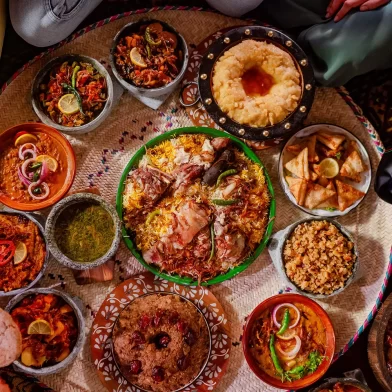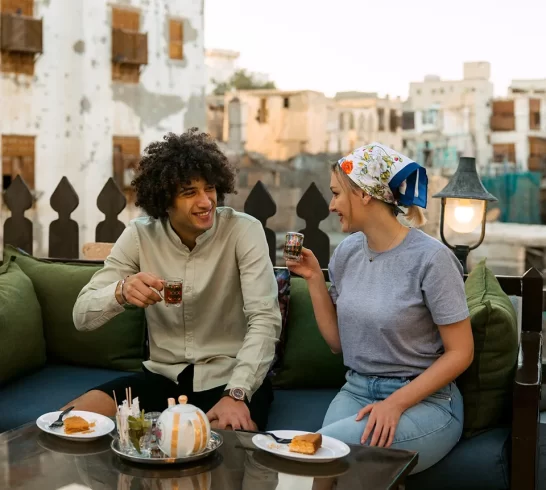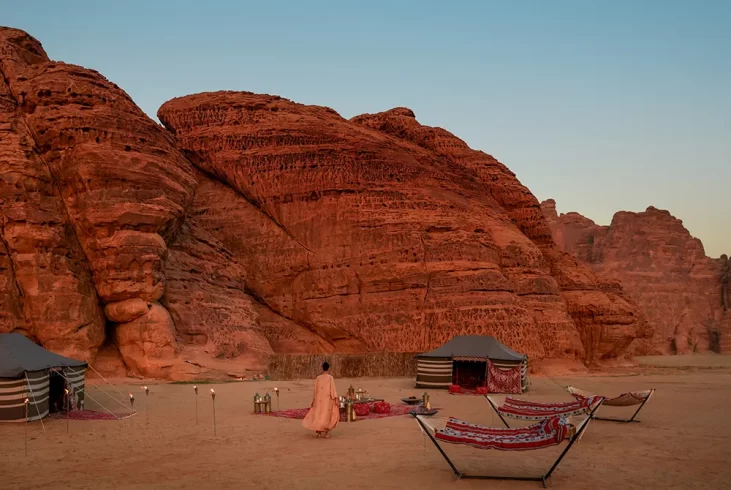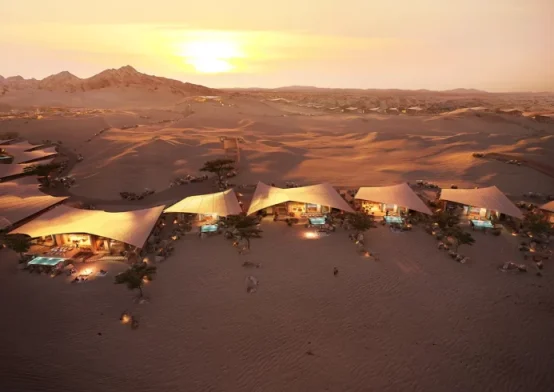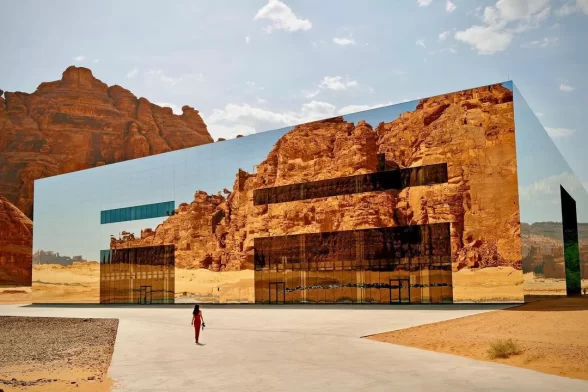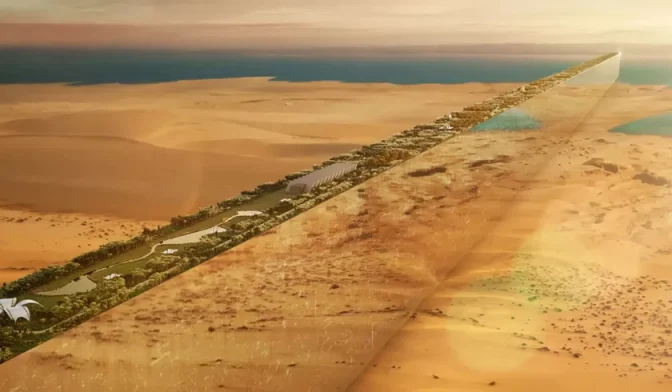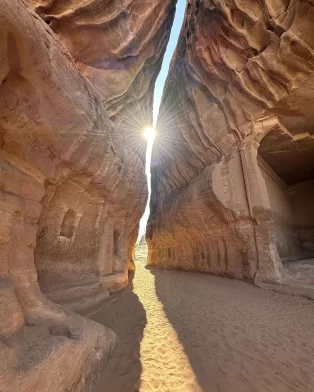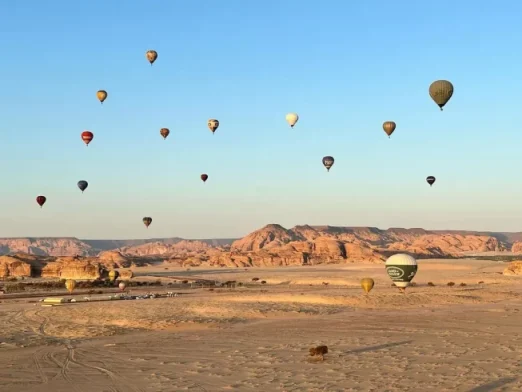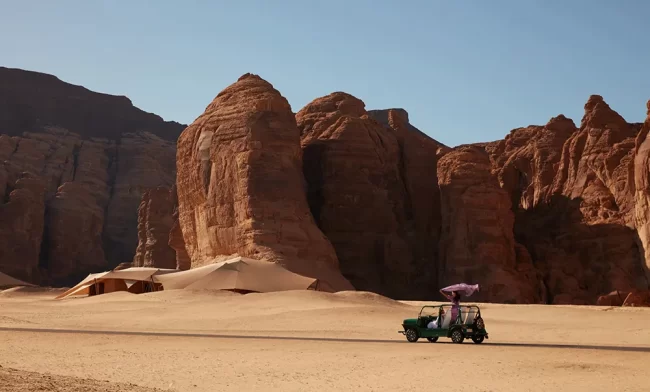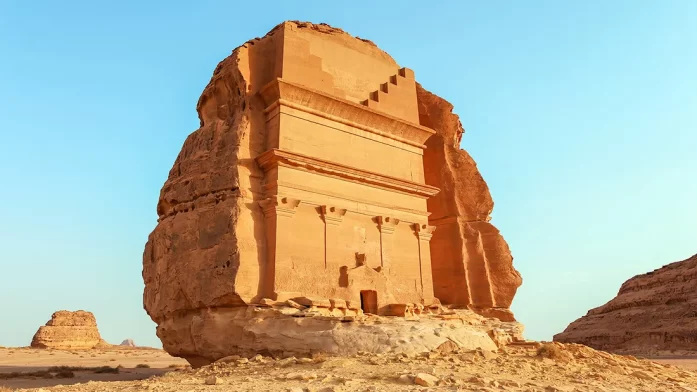Will Saudi Arabia’s Billion-Dollar Investments Make It a Prime Tourist Destination?
The world of luxury travel is evolving, and Saudi Arabia is emerging as a prime destination. Just a few years ago, Crown Prince Mohammed bin Salman opened the kingdom’s doors to tourists, marking a historic shift. Now, with visas available to citizens of 49 countries, including Lithuania, the exotic allure of Saudi Arabia is within reach.
A Land of Exoticism and History
For travellers seeking something truly unique, Saudi Arabia offers a remarkable blend of exoticism, luxury, history, and deep-rooted traditions unlike those in Western cultures. Historical sites such as Hail, Al-Ula, and Al-Hasa are must-visit destinations for anyone intrigued by ancient civilisations and cultural heritage.
Once a vital point on the ancient Incense Route, Al-Ula reveals a captivating chapter of history. Visitors can discover fossils, centuries-old stone inscriptions, and tombs dating back over 2,000 years. The remarkably preserved old town, built from adobe and stone, feels like a living, breathing museum.
In the eastern region of the country lies Al-Hasa – the world’s largest oasis. Covering 85 square kilometres, this lush area contradicts common desert stereotypes. Hundreds of artesian springs nourish the fertile soil, enabling year-round fruit cultivation and supporting vibrant agricultural life in the heart of the desert.
Aiming to Become One of the World’s Top Tourist Destinations
Saudi Arabia’s recent opening to international tourism marks a key pillar of its broader economic reform strategy, designed to reduce reliance on oil revenues. Tourism has become a national priority, with significant investments being made to elevate the country into a leading global destination.
One of the flagship initiatives is the Red Sea megaproject, which envisions the development of 50 luxury hotels and 1,000 private villas spread across 22 islands and six distinct regions by 2030. These developments are designed to cater to diverse travellers with a wide range of experiences.
For independent explorers, renting a car can be a rewarding way to discover the country’s hidden gems. However, as tourist infrastructure is still developing, some services—like petrol stations and restaurants—may not be as widespread as in more established destinations. To avoid potential challenges and ensure a smoother experience, travellers are encouraged to consider guided tours or local travel support.
NEOM: The City of the Future, Built Today
A central component of Saudi Arabia’s visionary tourism transformation is NEOM – a futuristic urban concept that redefines how cities are imagined and built. Spanning 170 kilometres in a sleek, linear form, this groundbreaking project rises 500 meters into the sky, with a mirror-like exterior that reflects both innovation and ambition.
Designed to integrate urban life with nature, NEOM will enable residents to access essential services—such as shops, schools, and offices—within a five-minute walk. High-speed rail systems will connect the entire city in just 20 minutes. With a focus on renewable energy and sustainable living, NEOM is envisioned as a fully self-sufficient community that enhances, rather than disrupts, the environment.
No Kissing, No Alcohol
Before visiting Saudi Arabia, it’s important to understand and respect the country’s conservative cultural norms. Shops and public services pause during the five daily prayers, and the entire atmosphere changes during the holy month of Ramadan, when Muslims fast from dawn to dusk.
Visitors are expected to follow local customs: avoid eating or drinking in public during fasting hours, refrain from public displays of affection, and dress modestly—especially women, who should cover shoulders and knees. Alcohol is strictly prohibited, and behaviour considered offensive or inappropriate, including ambiguous gestures or strong language, should be avoided.
While Saudi Arabia has traditionally focused on religious tourism—being home to Islam’s holiest site, Mecca—its doors are now opening wider to cultural and leisure tourism. The sacred pilgrimage of Hajj, which attracts millions each year, remains an experience reserved exclusively for Muslims. However, the broader transformation of the kingdom offers new possibilities for global travellers to explore a land rich in history, hospitality, and innovation.
